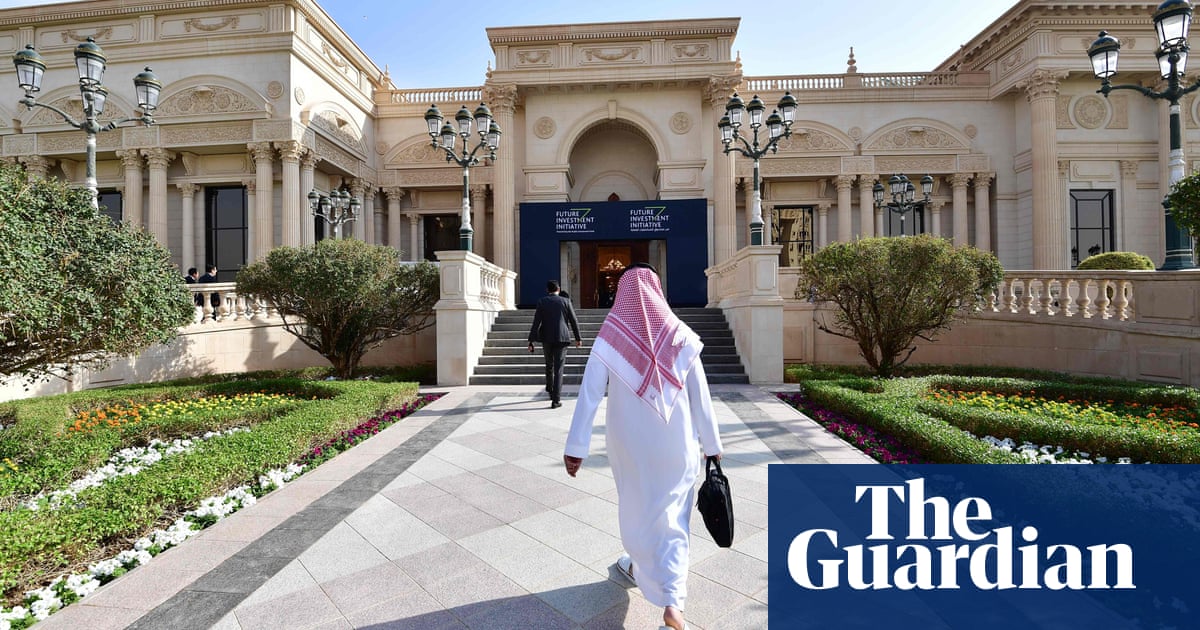
[ad_1]
The murder of journalist Jamal Khashoggi is unlikely to have much impact on trade and foreign investment in Saudi Arabia, according to John Flint, the chief executive of HSBC, Europe’s biggest bank.
“I understand the emotion around the story but it is very difficult to think about disengaging from Saudi Arabia, given its importance to global energy markets,” Flint said.
Flint was one of several banking chief executives who pulled out of an investment conference in Riyadh last week, along with Tidjane Thiam of Credit Suisse, Bill Winters of Standard Chartered and Jamie Dimon of JPMorgan Chase. However, Samir Assaf, the head of HSBC’s global banking and markets, attended the event.
Flint said: “My decision [to pull out] was not an easy decision but I felt it was the right decision under the circumstances.” He defended the bank’s decision to send Assaf to the conference, saying it had a responsibility to its 4,000 employees and many customers in Saudi Arabia, where HSBC is the biggest foreign bank through its 40% holding in Saudi British Bank.
Flint hinted at future investment in the Middle East, saying: “We are a significant part of the banking system in many parts of the region … We will build our businesses as the opportunities arise.”
The conference was shunned by most western business leaders amid an international outcry over the Saudi regime’s involvement in the dissident journalist’s death – but it concluded with $50bn (£38.9bn) of deals signed. Saudi Aramco signed 15 deals worth $34bn with the French oil firm Total and the US oil services firms Halliburton, Baker Hughes and Schlumberger, as well as companies from Japan, China, India and the United Arab Emirates.
Khashoggi, a columnist for the Washington Post, vanished on 2 October after visiting the Saudi consulate in Istanbul. Saudi officials have admitted he was killed by a team of agents sent from Riyadh.
Flint’s comments came as the bank surprised analysts with better-than-expected third-quarter results. Pre-tax profits rose 28% to $5.9bn in the three months to September, with revenues up 6.3% to $13.8bn, while costs fell nearly 7% to $7.97bn.
Flint lauded strong profit growth, particularly in Asia and Europe, the latter because of a good performance in the UK from retail banking and wealth management.
HSBC said last week’s high court ruling for Lloyds to equalise pension payments for men and women would affect many other defined-benefit plans across the UK. It will increase the liabilities of the HSBC pension scheme and reduce the plan’s £6.2bn surplus. The bank is in the process of evaluating the impact with its actuaries and will record a charge in the fourth quarter.
Flint, the bank’s former global head of retail banking and wealth management, succeeded Stuart Gulliver as CEO in February. Flint unveiled a plan for returning the bank to growth in June, which, like the strategy of his predecessor, focuses on expanding the business in Hong Kong and the Pearl River Delta in southern China.
Helal Miah, an investment research analyst at The Share Centre, said: “The new senior management team are trying to steer the bank to growth once again and their comments so far are fairly positive.
“HSBC will focus on driving further revenue growth from Asia while also expanding its wealth management and insurance business. While there was good news on cost controls this quarter, this is something HSBC have generally struggled with lately and such will remain a key strategic focus.”
Source link